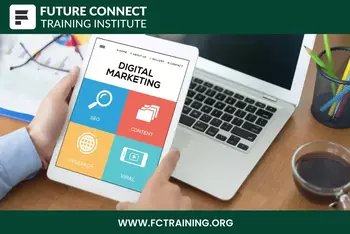Big Data Course
The Big Data and AWS course offers an integrated learning journey through the realms of Big Data and cloud computing. Starting with "Big Data Essentials," students grasp the foundational aspects of Big Data, including its characteristics and the 5 V's. The course then delves into the "Big Data Ecosystem," exploring technologies like Hadoop, Map-Reduce, and Apache Spark, essential for Big Data processing and analytics.
Course Overview
Subsequently, the course shifts focus to cloud computing, beginning with "Introduction to Cloud Computing and AWS Fundamentals," providing a base in cloud concepts and AWS architecture. This is expanded in the "AWS Computing Services" module, where students explore various AWS computing services, including EC2 and AWS Lambda.
The "Storage Services" module covers cloud storage technologies and practices, essential for data storage and management. In "Data Collection," the focus is on AWS's data collection methods, crucial for Big Data analytics. The course culminates with a module on "Docker," introducing containerization technology, vital for modern software development.
Course Modules
This module serves as an introductory exploration into the world of big data, providing participants with essential knowledge and insights into its significance and practical applications. Participants will gain an understanding of the core characteristics of big data and various data processing methods. Additionally, they will explore the different types of data, including structured, unstructured, and semi-structured data, along with key concepts such as ETL processes, data lakes, data warehouses, and data marts.
- What is Big Data
- Big Data Characteristics
- Data Processing Methods
- Structured Data
- Unstructured Data
- Semi-Structured Data
- ETL (Extract, Transform, Load)
- ELT (Extract, Load, Transform) & Comparison with ETL
- Data Lake
- Data Warehouse
- Data Mart
In this module, participants will delve into the fundamental tools and frameworks essential for managing and analyzing big data. The primary focus will be on two key technologies: Hadoop and Apache Spark. Through a combination of theoretical insights and hands-on practical exercises, participants will gain a comprehensive understanding of these powerful frameworks. From installation and setup to real-world applications, this module equips learners with the skills needed to harness the potential of big data in their respective fields.
- Hadoop
- HDFS (Hadoop Distributed File System)
- MapReduce
- Apache Spark Introduction
- Comparison with Hadoop
- Spark RDDs
- Spark Architecture
- Components of Apache Spark
- Anaconda Installation & Setup
- PySpark Installation & Setup
- DataBrick & Cloud Computing Introduction
- Databricks Setup for PySpark
- Spark Applications
- Spark Session
- Job
- Stage
- Task
- Spark Context
- Structured APIs
- PySpark RDDs
- Data Frames
- DataSet
- Read & Write CSV and Operations
- Withcolumn, Rename Column ( Column Operations )
- Cast, Contains, Describe
- Rank & Dense Rank
- Functions
- Data Frames Functions
- Window Functions
- Filtering
- Aggregation
- Sorting
- Descriptive statistics
- Handling Missing Values
- Correlation Analysis
- Chi Square Test
- Covariance
- Distinct
- Grouped (Sum, Min, Max)
- Grouped (Mean, Average)
- Count Distinct, Concat, Collect
- like & rlike
- isin & substr
- Pyspark SQL
- Pyspark TempView
- Pyspark GlobalView
- SQL Queries using Temp & Global View
- Pyspark Projects
In this module, participants will embark on a journey into the realm of cloud computing, exploring its transformative potential and the foundational principles underpinning Amazon Web Services (AWS). Through a comprehensive exploration of cloud computing concepts, AWS services, and architectures, participants will develop a robust understanding of how cloud technologies are reshaping industries and revolutionizing the way businesses operate. By delving into the intricacies of AWS, participants will not only gain theoretical knowledge but also practical insights into leveraging cloud resources effectively to drive innovation and achieve business objectives in the digital age.
- Module-01 (Introduction)
- What is Cloud Computing?
- Cloud Service Models
- Cloud Deployment Models
- Introduction to AWS
- AWS Architecture
- Module-02 (AWS Compute Services)
- What is an Instance?
- What is EC2?
- Types of Instances
- AWS Lambda
- AWS SDKs
- What is AWS Elastic Beanstalk?
- PaaS (Platform as a Service)
- Web Hosting Platforms
- Module-03 (Storage Services)
- What is Cloud Storage?
- Cloud Storage Practices
- Buckets & Objects
- Versioning & Cross-Region Replication
- Transfer Acceleration
- Module-04 (Data Collection)
- AWS Database Services
- Introduction to AWS Kinesis
Machine learning is a subset of artificial intelligence that enables computers to learn from data and make predictions or decisions without being explicitly programmed. It involves the use of algorithms, statistical models, and data to build predictive models and uncover insights from large datasets.
- Data Preprocessing
- Supervised Learning
- Unsupervised Learning
- Regression Models
- Simple Linear Regression
- Multiple Linear Regression
- Polynomial Regression
- Random Forest Regression
- Topics such as
- Assessing a Regression Model
- Bias vs Variance
- Regularisation
- Gradient Descent
- Classification Models
- Decision Tree Classification
- K-Nearest Neighbor
- Logistic Regression
- Na誰ve Bayes
- Random Forest Classification
- Support Vector Machines
- Additional Topics
- Assessing a Classification Model
- Adaboost
- Gradient Boosting
- XGBoost
- Grid Search CV
- Clustering Models
- Hierarchical
- K-Means Clustering
- Association
- Apriori
- Eclat
- Build Dashboards for Data Visualisation
- Solved Sample Code Files for easy practice
- Access to Multiple Datasets
- 7+ Real world data projects
Python is a widely-used programming language in machine learning. It offers powerful libraries, tools, and frameworks for data analysis, modeling, and visualization. Python's simplicity and flexibility make it a popular choice for building machine learning models and deploying them in real-world applications.
- Python Setup and What is Python?
- Data Types and Syntax
- Comparison Operators
- Python Loop
- Python Statements
- Logical Operators
- Methods and Functions
- Error and Exception Handling
- Modules Packages and libraries
- Debugging
- Advanced python Modules (DateTime)
- File Management
- Multiple Activities to Perform
- Multiple Projects to Build
SQL is critical in machine learning, allowing efficient data retrieval and analysis from relational databases. It ensures accurate analysis of large data sets, with solid understanding essential for success.
- DDL and DML in MySQL and setup
- ERD Diagrams and Relational Mapping
- Data normalization
- Basic Queries
- Database Manipulation
- Table Manipulation
- Relational Algebra
- Advanced SQL - Joining, Subquery, Views
- Database Security
- Multiple Activities to Perform
ETL (Extract, Transform, Load) and ELT (Extract, Load, Transform) are data integration processes used to extract data from various sources, transform it into a desired format, and load it into a target data warehouse or data lake for analysis and reporting. Both ETL and ELT play a crucial role in consolidating, cleaning, and preparing data for business intelligence and analytics purposes.
- Introduction to ETL/ELT
- Extract
- Transform
- Load
- Software Tools
- Talend Studio
- Apache Hadoop
- Apache Kafka
- Real-world data projects
The "Docker" module is designed to provide a thorough introduction and foundational understanding of Docker, a key tool in modern software development. This module is ideal for developers, system administrators, and IT professionals who are looking to gain practical knowledge in containerization technology, which is pivotal in achieving efficiency and consistency across various computing environments.
- Intro to Docker
- Docker Basis
- Creating your own Image
This module provides a comprehensive overview of Jenkins, a leading automation server widely used for continuous integration and continuous delivery (CI/CD) processes. Participants will delve into the fundamentals of Jenkins, its operations, and integration with other tools such as GitHub for creating efficient CI/CD pipelines.
- Jenkins Intro
- Jenkins Basics
- Jenkins Operations
- GitHub Integration & CI/CD Test Pipeline
Course Benefits
Career Advancement and High Demand Skills : Mastery of Big Data and AWS cloud technologies opens doors to high-paying, in-demand careers across various industries, preparing students for future roles in data and cloud computing.
Practical and Versatile Skill Set : The course offers hands-on experience with critical tools like Apache Spark and AWS services, equipping students with practical skills applicable in multiple sectors, from tech to healthcare and finance.
Enhanced Data Analysis and Problem-Solving Abilities : Students develop strong analytical skills, learning to manage, process, and interpret large datasets, which is essential for data-driven decision-making and effective problem-solving in professional settings.
Future-Ready and Industry-Relevant Expertise : The curriculum ensures students are adept with the latest technologies and trends in Big Data and cloud computing, making them valuable assets in a rapidly evolving digital landscape.
Skills You Will Gain
Big Data Analysis and Management : Skills in handling and analyzing large datasets using Big Data technologies like Hadoop and Apache Spark. This includes understanding how to process, store, and extract value from massive, complex data sets.
Cloud Computing with AWS : Proficiency in using Amazon Web Services for various cloud computing needs. This includes managing cloud infrastructure, understanding AWS architecture, and using specific AWS services like EC2, Lambda, and Elastic Beanstalk.
Data Processing and ETL Techniques : Ability to perform Extract, Transform, Load (ETL) operations efficiently, crucial for data integration and preparation in Big Data projects. This includes skills in data collection, storage, and transformation methods.
Containerization with Docker : Understanding of Docker and containerization, which is key in modern software development and deployment. This skill is vital for creating, deploying, and managing applications in isolated environments.
Practical Knowledge in Advanced Technologies : Gaining hands-on experience with cutting-edge technologies like Spark RDDs and cloud storage practices, equipping students with current and applicable skills in the tech industry.
Career Path
Big Data Architect
Cloud Solutions Architect
Data Scientist
AWS Cloud Engineer
DevOps Engineer with Cloud Expertise
Big Data Analyst
Machine Learning Engineer
Data Infrastructure Engineer
Certification
Get upto 20% off on CompTia Exam Vouchers upon Course Enrollment
Certification you can go for after completing Big Data Course:
- CompTIA Data+

Upon successful completion of this course, you will receive certification as formal recognition of your achievement along with recruitment support from Future Connect Training.
FAQs
Future Connect and all of its Accounting training is online and offline via centres, except for AAT classes which are online. However all the IT trainings takes place online only as it gives users complete freedom to study at their own liesure and pace. Also, the practical files that student uses are on the student's system and all the software setup takes place on user system for future use and practice. Our IT trainings includes programs like Digital marketing course, SQL course, Python course, Data Science course, Data Analysis course and Business Analysis course.
Yes, majority of Future Connect training courses pathways are CPD accredited.
We reccomend Data Analysis training as the job roles of trained data analyst has increased in last few years. The software you learn has an easy learning curve thereby making it easier to enter the industry.
CPD Accreditation is a trust mark achieved by training providers, course creators, and other educators when their training activity has been assessed and confirmed to meet standards suitable for Continuing Professional Development.
Future Connect is known for its excellent support in Recruitment in all of its complete pathways and offers Guaranteed Job Support, not Job Guarantee.

This course includes:
- Learn Big Data and AWS
- Learn Python, SQL (Database)
- Learn Machine Learning Skills
- Learn some popular software such as VS Code, XAMPP/MAMPP, Anaconda
- Creative Activities, Lectures and more
- Masters level Course Content with Hands-on Training
- Multiple Projects to test your skills upon
- Join the leading Industry with over 20 billion Pounds of investment
- Online Practical Training
- Flexible Payment Structure
- CV Support


